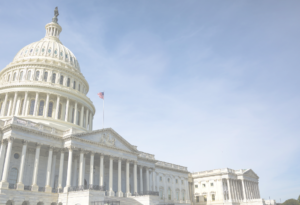
On October 16, 2020, SBA published a new Final Rule that includes expansive changes to the U.S. Small Business Administration programs related to: small business size, 8(a) Program, Mentor Protégé Program, joint ventures, and other SBA procurement program regulations. 85 Fed. Reg. 66146, “Consolidation of Mentor-Protégé Programs and Other Government Contracting Amendments.” https://www.federalregister.gov/documents/2020/10/16/2020-19428/consolidation-of-mentor-protg-programs-and-other-government-contracting-amendments.
The effective date for the rule is November 16, 2020 with the exception of some regulations related to Women Owned Small Businesses (WOSBs) which became effective immediately upon publication in the Federal Register. The new regulations are over 50 pages long in the Federal Register. The final regulations are quite a bit different than those which were proposed last November—mostly for the good for small businesses. In addition, this final rule encapsulates SBA’s major regulatory overhaul that really started in 2016 and continued through the last the last four years. The timeline below illustrates the many changes that have occurred within the small business Federal Procurement Contracting industry during that time.
- 1970 – 1970-First SBA regulation articulated policy of using 8(a) to assist “disadvantaged persons” to help them compete in the marketplace.
- 1986-Indian tribes and ANCs added to program.
- 1988-SBA established the MP program.
- 2010-Small Business Jobs Act of 2010 authorized SBA to establish MP programs for small business controlled and owned by women, service-disabled veterans, and small businesses located in a HUBZone.
- 2013-NDAA authorized the SBA to establish a MP program for all small businesses.
- 2016-July 25, SBA published final rule in the Federal Register modifying 8(a) to include a MP program for all small business participants in the 8(a) program which took effect Aug. 14, 2016.
- 2019-Nov. 8, SBA issues proposed rule to consolidate MP Programs and other sweeping 8(a) and small business changes.
- 2019-Dec. 26, SBA HUBZone Final Rule goes into effect, the first overhaul of the program since its inception.
- 2020-Jan. 6, SBA Final Rule regarding change to calculation of size (move from 3 yr avg to 5-yr avg), with transition period through Jan 2022, goes into effect.
- 2020-October 16, estimate date for release of SBA final regulations revamping all SBA business development programs.
It is a daunting task to review, analyze, and convey these regulatory changes that impact almost every small business and business development program, including the Service-Disabled Veteran-Owned (SDVO) business, businesses located in HUBZones, Women-Owned Small Businesses (WOSBs), all Small Businesses doing business with the Federal Government, and especially the SBA 8(a) Program participants. But, as you know, the accelerated changes to these various SBA business development programs in the last four years have been unprecedented. In our opinion, what small business government contractors and Federal Government Contracting officials need is stability, especially certainty regarding what rules govern their businesses. These recent Final Regulations appear to be the cumulation of a long-term effort to revamp Federal small business government contracting programs to make them better and to make it easier for small businesses to do business with the Federal Government.
Generally Applicable Small Business Changes. To highlight some of the changes, the SBA will create an All Small Mentor Protégé Program (ASMPP) for all businesses participating in the SBA programs. It made numerous changes to requirements for joint venture agreements and added provisions regarding facility security clearances for JVs. The SBA has sought to clarify and make using the small business size standards and affiliation rules easier to apply.
8(a) Program Changes. The 8(a) Mentor Protégé Program is being officially merged into the ASMPP. The proposed regulations will ease administrative and operational burdens on Joint Ventures. The regulations ease some of the harsher requirements of the 8(a) Business Activity Targets (BATs) in the later years of participating in the SBA 8(a) Program. The regulations will offer options to facilitate contract proposal submissions when dealing with the Bone Fide Place of Business requirements and potential delays in SBA approval. The SBA clarifies what will be considered a “follow on” contract and how a “bridge” contract will be considered related to a follow-on contract. SBA also added new training requirements for 8(a) applicants. For individually-owned 8(a) firms, SBA relaxed application requirements for family members to own their own 8(a) firms. For entity-owned concerns, there were several welcome changes to rules on holding company ownership approvals, excessive withdrawals, and many more topics.
The list goes on, and the topics are too varied to relate in this short article.
All small businesses (and other businesses that team with small businesses) must get educated about the new Final Regulations. We are confident SBA will make a concerted effort to educate and inform the public and the participants in SBA’s programs. The individuals in the SBA deserve much credit for accomplishing a monumental task and for taking seriously the hundreds of comments the SBA received during the public comment process. Over the last four years, some of these changes were prompted by the U.S. Congress and many were incorporated as a result of SBA’s years of experience and advocacy for small business. Overall, the final rule represents extremely good changes for small businesses. The new final regulations should foster and enhance small businesses doing business with the Federal Government.
There will be many sources of information to help small businesses and others understand the new rules that go into effect in mid-November. It is important that affected business review the changes, identify how the rules will impact their businesses, and take the necessary actions to update their compliance programs, contract terms, and business processes. Birch Horton Bittner & Cherot is proud of its services to the small business community. We look forward to being part of that effort. Please reach out to us if you would like more information on these rule changes or information on training and regulatory update options for your workforce.
